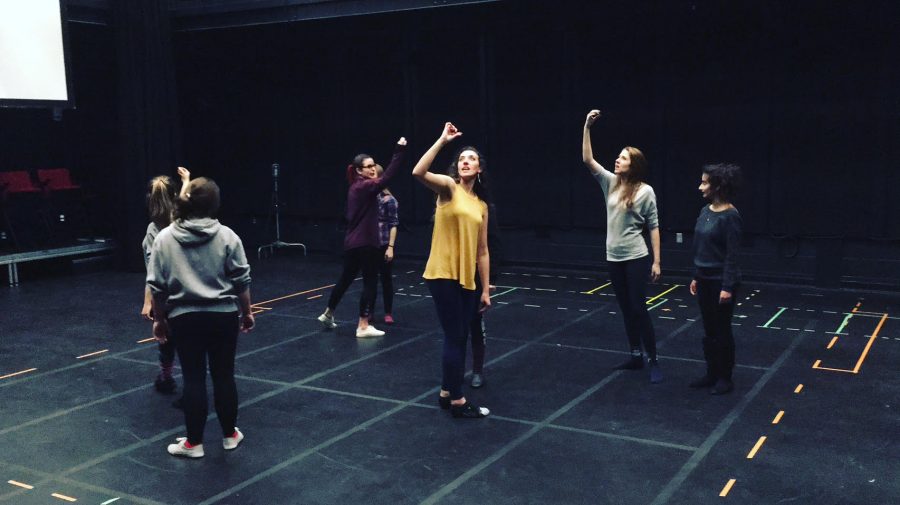Margaret Atwood is a well-known feminist author and she definitely shows it in her play “The Penelopiad,” currently being performed by the University’s Theatre Department.
In history, “The Odyssey” has been told and retold as a man’s story and within it there is a certain image of Penelope that is typically portrayed. Penelope is hailed as the “perfect, faithful wife” and as a standard woman. But early in director Sara Chamber’s version of the play, Penelope expresses her regret and urges the audience to not follow in her footsteps. Her story is an example of missed empowerment, because she could have taken control of her life and her kingdom, but she waited for her husband to return home.
The maids also tell their own feminist story. Women’s bodies have been used for centuries for work and for male pleasure and “The Penelopiad” makes that clear. Penelope’s 12 maids work in her favor but give themselves to the suitors to protect Penelope. They are condemned by Telemachus and killed by Odysseus himself, despite their loyalty to his wife and his kingdom. While Penelope’s story is about her missed empowerment, the 12 maids who were born into slavery and used for their bodies were never given the chance for empowerment.
Penelope narrates her own story from the Ancient Greek afterlife, after she has died. She is joined by her husband, her son, and her cousin, the famous Helen of Troy. Most of her story is acted out by her 12 maids. They portray characters like her parents, Odysseus’ parents, and her suitors, but also take on more abstract roles like Penelope’s bed and Odysseus’ boat.
Penelope starts her story from her birth and continues on through her life as she marries Odysseus, has her son, waits 20 years for Odysseus to return from war while being constantly hounded by suitors and her eventual death. Every so often she is interrupted by her maids as they chant or sing to tell their own story, one of being born into slavery and used however their masters pleased.
The play stars Katya Dachik as Penelope, and while the show is traditionally cast with only women, two men portray Penelope’s husband, Odysseus played by Jarod Mariani, and her son, Telemachus. Dachik’s performance as Penelope is subtle but captivating. Much of the play is Penelope addressing the audience and describing her life, but the audience stays interested in her story. The audience wants to root for Penelope and to know how her story ends. Penelope stays relatively stoic for most of the play, but the end is definitely when Dachik is at her best.
The 12 maids also give a strong performance. Their chants and songs gave me goose bumps. As stated above, they portray most characters in this story and it is interesting to watch them change from bed post, to maid, to suitor as the plot moves along.
There are only two men in this play, and their performances were not as captivating or interesting as the women in the show. That’s okay, however, because the show isn’t about them. The men don’t dominate the show and they aren’t supposed to.
The sets and costumes are simple but interesting and are sprinkled with Ancient Greek letters. The set only includes two sets of staircases and the maids all wear the same outfit. This makes it clear that they are one entity, used to tell the story of our impoverished and enslaved female ancestors who were used by men and ignored by history. The simplicity of the set and the costumes really gets across the point that Penelope is telling her story from the afterlife.
“The Penelopiad” tells an ancient story in a fresh, new way with noteworthy performances, feminist themes and surprisingly good music.














